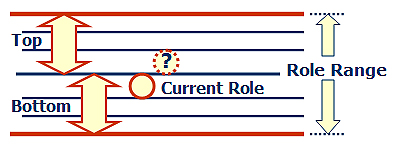From the Ask Tom mailbag:
Question:
What do you do when you have a team member with an over-inflated ego. This person does NOT have the capability to work at a higher level. Yet, because they have been here a long time, they think they should be given a promotion and the compensation that comes with it. They are already overpaid in their current role.
Response:
This is where titles and compensation get all mixed up with egos and status. The one thing that gets left out in the cold is the WORK. In most cases, I could care less about the title in the role, I care more about the WORK.
Whenever I am approached about promotions, raises, change of title, my first response is, “Fine, let’s talk about the WORK.”
What you describe is not an isolated incident, but a systemic problem where your organization has had no calibration to determine the level of work (capability) required in its roles. Compensation gets out of hand, people receive raises and title changes based on time served (like we are running a prison).
So, the answer to your question is not a specific technique to resolve this specific situation with this specific person. This is a systemic solution which requires the organization to continually define the WORK, the capability required to complete the work, and to assess the effectiveness of the people we have in those roles, doing the WORK.
This assessment, the Personal Effectiveness Appraisal, continually calibrates, over time where the person is, in relationship to the WORK. This is a simple assessment, a required managerial leadership practice. It asks these questions.
- Is this person working satisfactorily in the role?
- In that role, is the person working as effectively as someone in the top half of the role or the bottom half of the role?
- And in that half, is the person working as effectively as someone in the bottom, middle or top of the role?
This simple calibration, discussing the work and effectiveness, helps everyone – the team member, the manager and the manager once removed (MOR) to have helpful discussions about appropriate task assignments where team members are working at (at least near) their maximum capability.
When used over time, with all roles, the organization creates higher levels of trust by engaging in productive conversations about the work (in roles) and effectiveness. This prevents a lot of nonsense where team members have inappropriate (miscalibrated) understandings of their own capability related to task assignments.
